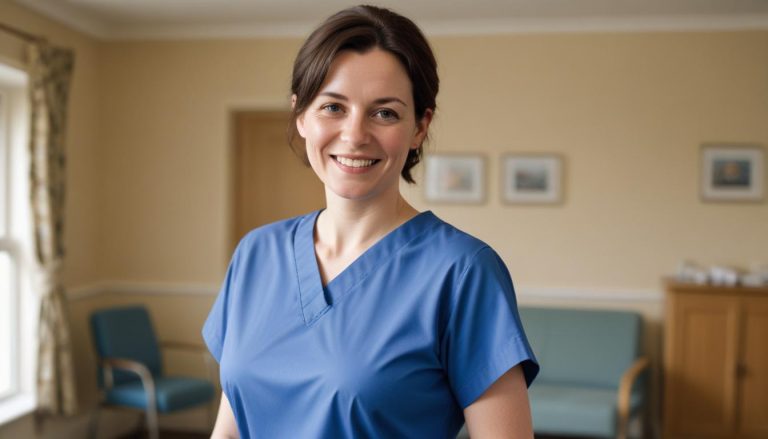
Summary
- Definition: Early detection involves using screenings and tests to identify diseases before symptoms appear, aiming to diagnose conditions like cancer and diabetes at an early stage.
- Benefits: Detecting health issues early significantly improves patient outcomes, reduces healthcare costs, and enhances quality of life by allowing for less complex and more effective treatments.
- Methods: Common methods include national screening programmes, regular check-ups with GPs, and the use of health monitoring apps to track health metrics and alert users to potential issues.
- Challenges and Future: Despite challenges such as access disparities and public awareness, advancements in technology like AI and genetic screening are paving the way for improved early detection practices in health and social care.
Early detection refers to identifying signs, symptoms, or risk factors of illness or social care needs as soon as possible, often before they become serious or harder to treat. Professionals use a range of approaches to spot these signs quickly in people who might not have obvious symptoms.
Early detection supports people to get the right help, maintain independence, and potentially avoid complications. This practice spans physical health, mental wellbeing, and social care situations.
The Value of Early Detection
Spotting warning signs in the initial stages helps prevent conditions from worsening. This doesn’t just mean medical diseases—early detection can relate to risks in mental health, safeguarding, and unmet social needs. Acting promptly can lead to better outcomes, lower the need for intensive services, and support people to live more comfortably.
For individuals, recognising issues early makes it more likely treatments or support will work. This can mean picking up on mild forgetfulness in older people, noticing subtle behavioural changes in children, or identifying patterns linked to abuse or neglect.
Early Detection in Physical Health
Detecting illness at an early stage is common in many healthcare settings. Many health organisations run screening programmes for different diseases. Spotting conditions such as cancer, diabetes, or heart disease at an early point increases survival and quality of life.
Professionals look for:
- Subtle changes in health
- Mild symptoms that could suggest a serious problem if ignored
- Family history of illness
- High-risk behaviours, such as smoking or poor diet
For example, health checks for over-40s can pick up the early signs of diabetes or high blood pressure. Breast screening aims to identify tumours before they cause symptoms.
Early Detection in Mental Health
Not all illnesses show physical signs. Mental health conditions can build slowly, making them hard to spot. Early detection in mental health means identifying subtle changes or risk factors. Examples include mood swings, sleep problems, withdrawal from social activities, or changes in performance at work or school.
Prompt support can shorten recovery times or even prevent more severe issues. It can help people avoid hospital stays or crisis interventions. Early detection in mental health is especially valuable for children and young people, where early support can have lifelong benefits.
Signs might include:
- Unexpected changes in mood or behaviour
- Difficulty concentrating
- Losing interest in hobbies and activities
- Preoccupation with negative thoughts
Support offered after early detection ranges from counselling and peer support to practical advice and therapy.
Safeguarding and Social Care
Early detection is crucial for safeguarding vulnerable people. This means recognising when someone might be at risk of harm or neglect before anything serious happens. Examples include picking up on poor hygiene in an elderly person who lives alone or recognising possible neglect in children.
Social care professionals look for warning signs, such as:
- Untreated health problems
- Poor living conditions
- Signs of physical or emotional abuse
- Withdrawal from community life
Acting early can prevent serious harm and ensure people receive the support they need to live safely.
Tools and Methods for Early Detection
Healthcare and social care staff use many ways to detect issues. These can be routine checks, observation, or using screening tools. Information is taken from talking to the person, speaking with relatives or carers, and checking records.
Common tools and approaches include:
- Health screening questionnaires
- Regular health checks
- Cognitive assessments for dementia
- Observations by family, friends, or carers
- Safeguarding risk checklists
Professionals work together, sharing information where necessary (with permission) to spot concerns.
Examples of Early Detection Programmes
Across Britain, several national programmes aim to spot problems early.
Examples include:
- NHS Health Checks for 40-74 year olds to identify the risk of heart disease, stroke, diabetes, and kidney disease
- Cervical, breast, and bowel cancer screening
- Diabetic Eye Screening to prevent sight loss
- School nurse assessments in primary schools
In social care, regular reviews by a keyworker or carer can pick up gradual changes in wellbeing, functioning, or living circumstances.
The Role of the Individual and Community
Early detection isn’t only the responsibility of professionals. People are encouraged to know what’s ‘normal’ for themselves and their loved ones. Recognising signs quickly and not ignoring minor symptoms can save lives.
Communities, friends, and family can:
- Look out for changes in behaviour or appearance
- Support people to access health services
- Share concerns with professionals if worried
Raising awareness of warning signs and promoting routine checks helps people take action sooner.
Overcoming Barriers to Early Detection
Many things can make early detection difficult. Some people ignore symptoms, feel embarrassed, or worry about the consequences of asking for help. In other cases, professionals might not recognise the importance of minor concerns.
Common barriers include:
- Stigma about illness, especially mental health
- Lack of knowledge about warning signs
- Believing it’s ‘just part of getting older’
- Fear of upsetting someone or damaging relationships
- Concerns about confidentiality
Tackling these barriers means giving clear information, encouraging open conversations, and making health and social care accessible to everyone.
The Benefits of Early Detection
Spotting problems early brings a range of benefits. For the individual, it means a better chance of recovering or managing a condition.
Benefits include:
- Easier and less invasive treatments
- Less disruption to daily life
- Improved independence, especially for older people
- Avoiding crises such as hospital admission or loss of ability
- Lower costs for families and health services
In social care, this approach means people keep stronger connections with their communities and families.
Early Detection and Long-Term Conditions
Long-term conditions like diabetes, arthritis, or dementia place a burden on both the individual and health services. Early detection supports ongoing management, helping people stay independent for longer and reducing the strain on carers.
This might include:
- Monitoring for memory changes in someone with early signs of dementia
- Checking for foot ulcers in people with diabetes
- Regularly assessing symptoms so changes are noticed quickly
This approach leads to better planning and more personalised support.
Early Detection and Reducing Inequality
Not everyone experiences health and social care in the same way. Inequalities in income, education, and access to services can mean some groups are more likely to have delayed detection. Early intervention programmes in deprived areas help close this gap. These target resources and education where they are needed most, giving more people the chance to get help quickly.
Key approaches include:
- Outreach programmes in schools and communities
- Translation and interpretation services
- Providing easy-to-read information and advice
Recognising and responding to these differences ensures detection is effective for everyone.
Confidentiality and Privacy
Detecting issues early means using sensitive information. This information must be handled with care. Professionals follow strict laws and guidelines, such as the Data Protection Act 2018. They only share information with other professionals if it is necessary for the person’s safety or wellbeing and, where possible, with their consent.
Staff Training and Development
Staff in health and social care go through regular training on spotting warning signs. They learn:
- How to ask sensitive questions
- What to look out for with different age groups
- How to record and report concerns
- When and how to take further action
This training is updated to match the latest guidance and to reflect new risks or challenges.
Technology and Early Detection
Digital tools are helping to spot changes earlier than ever. For example, some GP practices use electronic reminders for routine checks. Wearable devices now monitor heart rate or blood sugar, sending alerts to professionals if something looks wrong.
Examples of technology in early detection:
- Online self-assessment tools for depression or anxiety
- Remote monitoring for people with long-term illnesses
- Electronic health records that flag up concerns easily
Such innovations support both professionals and the public, making early detection more effective and accessible.
Involving the Person
People are placed at the centre of early detection. Care and decision-making work best when people are fully involved and informed.
Professionals support the person by:
- Explaining what checks are for
- Allowing time to ask questions
- Encouraging self-monitoring and reporting of changes
- Taking account of individual preferences, beliefs, and needs
Respecting choice is vital even when professionals sense an issue may develop.
Final Thoughts
Early detection in health and social care means picking up signs of trouble before they become serious. Whether it’s cancer, a mental health problem, the risk of abuse, or changes in ability, spotting these early makes help easier and more effective. Everyone has a role to play—from professionals trained to spot subtle changes, to families and communities encouraging people to seek help. By raising awareness, providing good access to information, and using both people’s knowledge and technology, early detection can protect lives and support better health and wellbeing for all.
Subscribe to Newsletter
Get the latest news and updates from Care Learning and be first to know about our free courses when they launch.






